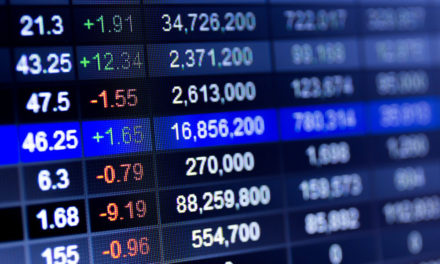Major U.S. stock indexes edged somewhat higher as enthusiasm over a surge in hiring in January was tempered by a weak revenue forecast by Amazon and more in Friday’s Stock Market Update.
Losses in retailers, led by Amazon, outweighed gains in energy stocks, banks and technology companies, placing the benchmark S&P 500 index on track to break a two-day winning streak.
The solid jobs report came a day after investors got encouraging news from the Federal Reserve, which confirmed that it will be “patient” in deciding when to raise interest rates.
Stocks are coming off their biggest monthly gain since 2015 as investors worry less about the prospects of the U.S. economy dipping back into recession and as big U.S. companies report mostly higher earnings. Chevron and Exxon both gained after results beat forecasts.
The market’s strong finish to January, capped by the jobs report, may have prompted investors to take a breather Friday.
“There’s going to be a vacuum of positive catalysts next week, with the exception of a few individual earnings reports,” said Randy Frederick, vice president of trading & derivatives at Charles Schwab. “With this type of a rally behind us, it just looks to me like we’re running out of a little bit of steam here in the near term.”
STOCK MARKET UPDATE
The S&P 500 index rose 2 points, or 0.1 percent, to 2,706 at closing time. The Dow Jones Industrial Average rose 64 points, or 0.3 percent, to 25,063.
The Nasdaq composite dropped 17 points, or 0.3 percent, to 7,263 points. The Russell 2000 index of smaller companies picked up less than 1 point, or 0.1 percent, to 1,500. Major European indexes finished higher.
Stocks got an early boost Friday as investors welcomed the latest monthly U.S. hiring snapshot.
U.S. employers added 304,000 jobs in January, far more than the 165,000 that economists were expecting. The government also revised its December figures sharply lower, to 222,000 from 312,000. Even with the revision, hiring has accelerated since last summer, a development that has surprised economists, because hiring typically slows when unemployment is so low.
Despite the strong jobs report in the U.S., investors are seeing signs of weakness elsewhere in the global economy. Inflation among the 19 countries that use the euro eased in January, a sign of weakness in a region already beset by many challenges. Italy is in a recession and Britain appears to be headed for a disorderly exit from the European Union.
In the U.S., consumer confidence fell in January for a third straight month. The housing market is slumping as mortgage rates steadily increase. Sales of existing homes plunged in December and fell 3.1 percent in 2018.
The protracted trade war between the U.S. and its trading partners continues to be a significant worry for investors. On Friday the European Union introduced new measures to prevent steel produced for the U.S. market from flooding into Europe.
Two days of trade talks between the U.S. and China wrapped up Thursday without a deal but with an upbeat outlook. The continued negotiations come as investors are worried about a slowdown in China and the damage the tariffs could cause to the U.S. economy by raising prices on consumer products.
Amazon’s latest outlook disappointed investors and weighed on the broader retail sector Friday.
The e-commerce giant cashed in on a strong holiday shopping season, and the company’s quarterly earnings topped $3 billion for the first time. Both profit and revenue beat Wall Street forecasts, but the results couldn’t outweigh disappointment over the company’s outlook.
Amazon expects sales between $56 billion and $60 billion, while Wall Street analysts expected $60 billion. The stock fell 5.4 percent to 1,626.61.
Other big retailers also traded lower. Kohl’s slid 2.6 percent to $66.92 and Target dropped 2.4 percent to $71.24.
Exxon and Chevron both made gains after beating forecasts despite a highly volatile period for oil prices. The price of benchmark U.S. crude fell about 40 percent during the final quarter of 2018. That sharp drop followed a year of price gains. For Exxon, it was the most profitable year since 2014.
Exxon rose 3 percent to $75.49 and Chevron gained 3.4 percent to $118.53.
Benchmark U.S. crude rose 2.7 percent to $55.26 per barrel in New York. Brent crude, used to price international oils, rose 3.1 percent to $62.75 in London.
Bond prices fell. The yield on the 10-year Treasury rose to 2.69 percent from 2.63 percent late Thursday.
The dollar strengthened to 109.51 yen from 108.66 yen on Thursday. The euro weakened versus the dollar to $1.1461 from $1.1479.
Gold fell 0.2 percent to $1,316.90 an ounce. Silver lost 0.9 percent to $15.93 an ounce. Copper dropped 0.4 percent to $2.77 a pound.
In other energy futures trading, wholesale gasoline rose 4.3 percent to $1.44 a gallon. Heating oil gained 1.9 percent to $1.91 a gallon. Natural gas dropped 2.8 percent to $2.73 per 1,000 cubic feet.
© The Associated Press. All rights reserved.




